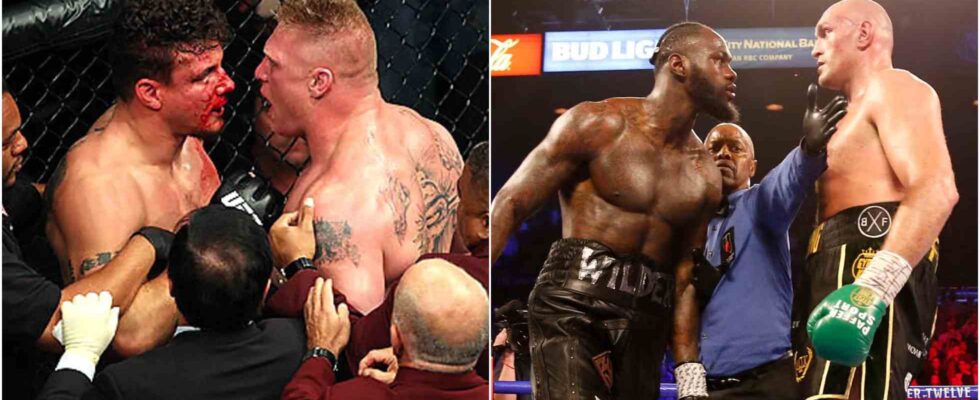Frank Mir was once one of the greatest stars in the promotion, but controversy overshadowed recognition for all the hard work he had put in throughout his years in the Octagon as his career came to an end. When the Syndicate MMA contender faced Tim Sylvia in 2004 to decide who should win the vacant UFC heavyweight belt, he took first place.
Over the span of 12 eventful years, Mir’s tenure in the UFC witnessed multiple showdowns for prestigious titles. This also includes a victorious interim title bout in 2008. However, a late-career setback occurred when he faced a two-year suspension due to a failed PED test for the Turinabol M3 metabolite. He requested and received his UFC release a year later.
In a candid interview in 2019, Mir talked about the financial toll of his UFC departure. He also talked about the loss of lucrative opportunities and sponsorship deals.
Mir stated: “I’ve lost millions. I had six more fights on a contract that paid me well. If you have noticed, my last fight, I didn’t even have sponsors. It’s difficult right now to rebuild up everything because of having to battle back from being falsely accused of something. It makes things difficult.”
In another recent interview, Mir reflects on his UFC 100 PPV headliner match against Brock Lesnar for the heavyweight title. Mir claims he began to understand how much money was really up for grabs in his career after seeing the type of sums that elite boxers like Tyson Fury and Deontay Wilder were able to command for their matches in 2020 and 2021.
Mir said: “I think when it finally dawned on me was the Deontay Wilder [rematch] with Tyson Fury. We still did more buys than they did, me and Brock, and then I’m looking at the pay-per-view cost. OK, the money was there. Who did it go to?”
“Seeing these guys make $40 million combined. I’m like wow. Brock obviously made seven figures off it, I think he made $2.5 million. But I didn’t even make a million.”
Mir went on to say: “At the time, I didn’t know better. We didn’t know. Just now as time goes on, I’m looking around like, hold on a second, that makes no sense. A pay-per-view buy is a pay-per-view buy.”
“Why is this sport paying their athletes this percentage of what they’re making versus this one? It’s the pretty same makeup. This isn’t two wildly different sports, boxing and MMA. They’re very comparable when it comes to putting up a cage or a ring, so it’s not like the costs are different.”
As Mir himself clarified in the same interview, one of the most significant distinctions in boxing is that both boxers have promoters who want to maximise revenues for all parties. In MMA, every athlete on a particular event almost invariably works solely for one promoter who has total control over the income stream to allocate whatever they see appropriate. As that’s how they are paid, boxing promoters have an incentive to see to it that their boxer is paid. However in MMA, the UFC always earns.
This is precisely the type of case that a number of competitors made when they sued the UFC. They requested compensation for the years they spent competing in the organization between 2010 and 2017. The lawsuit claimed that the UFC engaged in a number of business tactics that limited opportunities for contenders, hindered competition, and kept industry pay low.
The UFC decided to pay a total of $335 million to settle the claim, even though the case seemed to be heading for trial in 2024.
